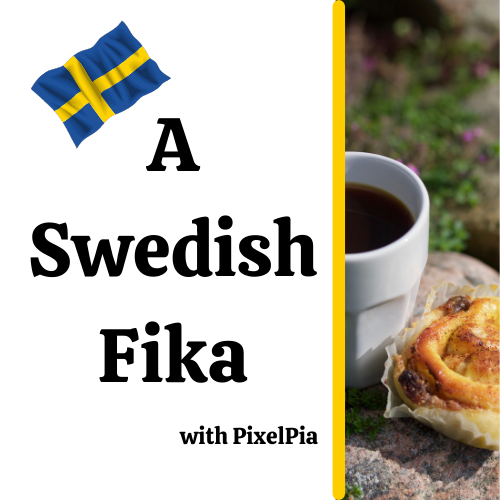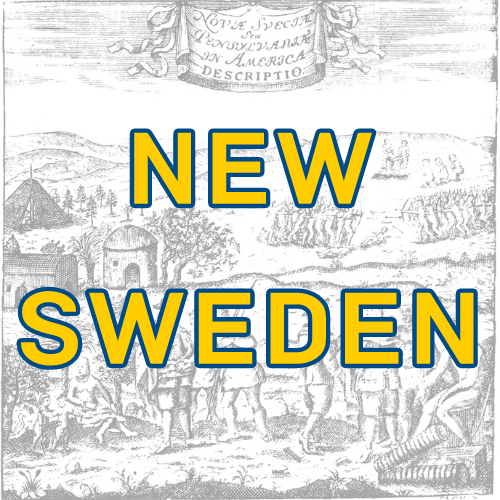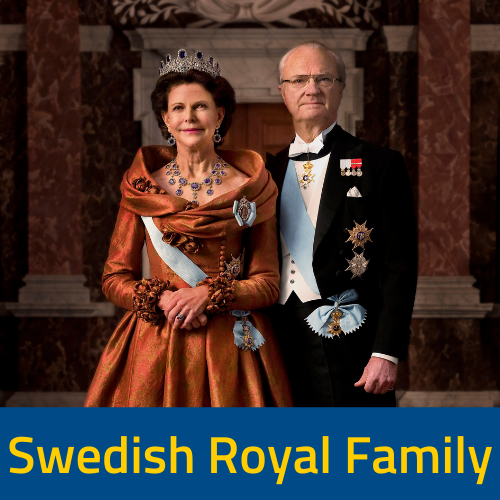According to the RSF (Reporters Without Borders) World Press Freedom Index for 2022 Sweden ranks #3 just behind Norway and Denmark. The list is based on the degree of freedom that journalists and news organizations have in each country and the efforts that authorities make to safeguard this freedom. Today I want to explore what freedom of speech and censorship mean in Sweden.
Openness and transparency are vital parts of Swedish democracy. There are four fundamental laws that are the controlling this;
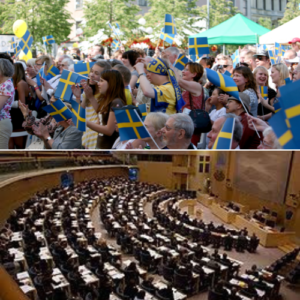
- the Instrument of Government (targets and rules for how the state should be organized and governed)
- the Freedom of the Press Act (protects freedom of speech in print)
- the Fundamental Law on Freedom of Expression (the right to express yourself and state your opinion)
- the Act of Succession (specifies how the royal crown is inherited when the current king or queen dies)
These four laws make up the Swedish constitution and take precedence over all other laws. So let’s take a closer look at what they say.
The Instrument of Government
It starts with the foundation of a democratic society and establishes that all public power in Sweden proceeds from the people. The opening chapter also states that the Riksdag enacts the laws, the King or Queen should be Head of State, the Government governs the Realm, and the courts shall observe objectivity and impartiality.
The Instrument of Government describes how the country is to be governed, our democratic rights, and how public power is to be divided. The first Instrument of Government was issued in 1634. In 1809 it was enacted and one of the things that changed was the division of powers between the King and the Riksdag (the Swedish parliament). A couple of enactments have been done since;
A parliamentary system – that the Government governs the country with the support of Parliament – started to apply after the end of the First World War, but it was not written into the Constitution until 1969.
The power of the King has diminished successively over the years. When the current Instrument of Government came into force in 1974, the King was stripped of all political power and left with symbolic duties.
The Freedom of the Press Act
In 1776, Sweden became the first country in the world to write freedom of the press into its constitution. It states that those in authority must be held accountable and all information must be freely available. The law protects the identity of sources who provide publishers, editors, and news agencies with information, and journalists can never be forced to reveal their sources.
It also means that anyone is free to publish books, journals, and newspapers as they wish.
At the same time as the Freedom of the Press Act gives us the right to express ourselves freely, it also protects us against defamation and insulting language and behavior. If, for example, someone writes something that may be considered to be agitation against a population group, such as racist comments, or publishes images with elements of sexual violence, this may be regarded as a violation of the Freedom of the Press Act. The same applies if the state or society is threatened through the publication of information that may be regarded as high treason or espionage.
When abused, freedom of speech can be offensive, incite discrimination or violence, or have negative consequences for an individual or society. It is the non-political Office of the Chancellor of Justice that deals with suspected crimes against the freedom of press or expression laws.
The Freedom of the Press Act also contains the principle of public access to official documents. According to this principle, everyone is entitled to access official documents. The principle of public access to official documents is a guarantee that makes the work of the Riksdag, government, and public agencies transparent. Everyone is entitled to contact a public authority and request a copy of an official document. Anyone requesting access to an official document does not need to provide their name or any details of how the document will be used.
The principle of public access grants the general public and the mass media access to official records. This means they have the opportunity to scrutinize the activities of government on all levels – national, regional, and local. Transparency reduces the risk of power being abused.

Fundamental Law on Freedom of Expression
In Sweden, you have the right to have an opinion on anything and say almost anything you want. You have the right to express yourself freely on the radio, TV, and the Internet. The Fundamental Law on Freedom of Expression sets out these rights. It also describes what is not permitted, for example defaming or publicly insulting another person.
The Law has been extended alongside the development of new media. Examples of possible offenses against the Fundamental Law on Freedom of Expression include films with elements of sexual violence or threats to the security of the country or society through the publication of something involving treason or espionage.
Civil servants and others who work for the government are also free to inform the media or outsiders. However, certain information can be classified – for example, if it involves matters of national security or sensitive information about health and medical care.
The Fundamental Law on Freedom of Expression applies to radio, TV, films, sound and picture recordings, video and CD recordings, as well as websites and blogs with a journalistic focus. Public agencies are not permitted to examine what is broadcast on the radio, television, or via another form of technical recording in advance. The exception is films shown at the cinema, which is the only form of media for which prior examination by the state is permitted. The Swedish Media Council still classifies films for public screening, giving them different age ratings.
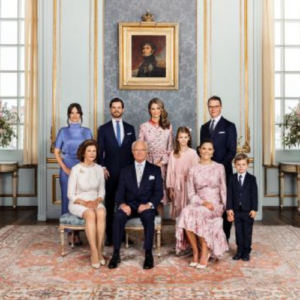
The fourth part of the constitution is The Act of Succession.
Sweden is a monarchy and King Carl XVI Gustaf is Sweden’s head of state. It is set out in the Instrument of Government that we shall have a king or queen as head of state. It is, however, the Act of Succession that contains the rules on who shall succeed to the throne.
Until the 1970s, Sweden had a male succession, but in 1979, the Riksdag decided that female heirs would have equal rights to the throne and can also become head of state. Not that this in any way affects the freedom of speech, but it is a part of the constitution so I wanted to include it.
So now we have an idea of what the Swedish constitution has to say about freedom of Speech and censorship. But what does that mean for regular people?
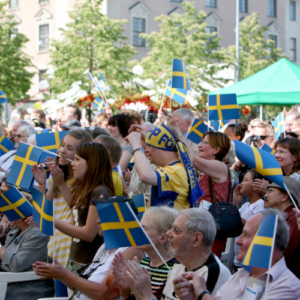
A survey was conducted by PEW Research Center in 2019 About how democracy works in their country and we are going to take a look at the following statements
- The rights of people to express their views in public are protected
- Most people have a good chance to improve their standard of living
- The court system treats everyone fairly
- Elected officials care what ordinary people think
- No matter who wins an election, things do not change very much
- Most politicians are corrupt
- Most people live in areas where it is dangerous to walk around at night
And we will compare the answers between people in Sweden with people in the US and the world. The numbers are the percentage of people agreeing that the statements describes their country very well
| Statement | Sweden | USA | The world |
| The rights of people to express their views in public are protected | 80 | 73 | 62 |
| Most people have a good chance to improve their standard of living | 80 | 74 | 57 |
| The court system treats everyone fairly | 64 | 47 | 44 |
| Elected officials care what ordinary people think | 55 | 41 | 35 |
| No matter who wins an election, things do not change very much | 65 | 54 | 60 |
| Most politicians are corrupt | 20 | 69 | 54 |
| Most people live in areas where it is dangerous to walk around at night | 24 | 43 | 35 |
We can see that Swedes, in general, have much more confidence in their politicians and their court systems. But both Sweden and the US feel that the freedom of speech is well protected.
Let’s me give you a warning, especially if you are traveling to Sweden with small kids, about Swedish Television. There are both good and not-so-good things to say, the good part is that Sweden doesn’t dub the TV shows, instead, they use closed captions for non-Swedish shows. This makes it easy for non-Swedish people to watch TV while visiting Sweden. This is also partly why Swedes are, in general, so good at speaking English.

Unlike in some other countries, Swedish television media is seldom censored for crude linguistic content and so even recorded programs would feature any swear words uttered, without the protective bleep which is common, for example, in the UK or US. So if you travel with kids and watch TV you better don’t let them watch late shows where the possibilities of cursing might increase.
Let me end today’s episode with a true story from a school I worked at in Sweden.
The kindergarten classes were working on a project about the human body, specifically the names of our fingers which in Swedish are tumme (thumb), pekfinger (index finger), långfiner (long finger or middle finger), ringfinger (ring finger), and lillfinger (little finger). A teacher asked one of the boys in her group if he knew the names of the fingers, and he prodly said yes and started to tell her;
Tumme
pekfinger
f*Youfinger
ringfinger
lillfinger
The teacher managed to keep herself from laughing out loud, and corrected him. But he had heard people on TV, and maybe in real life, showing someone the middle finger and saying F* You, so his conclusion was that that finger must be called F*youfinger.
With that story, we have reached the end of today’s episode. In my next episode, I will take a look at common questions people have about Sweden and common misunderstandings about Sweden and Swedes.
Until then as we say in Sweden
Hej Då!
The photo of the Royal Family is from
Copyright Notice:
Photo: Linda Broström/The Royal Court of Sweden
